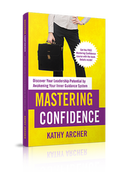Understanding Pre-Meeting AnxietyIf you are a nonprofit leader and have a tough meeting coming up, you will want to feel empowered going into it. Tune into Sandra's story to build your confidence going into challenging conversations! Sandra's Story: Facing the Fear of a Tough MeetingWhen Sandra came to our coaching call, she was preparing for a meeting with the Executive Director about her performance. Sandra was dreading the meeting. She knew her boss would make her feel stupid, small and even scared.
But that's not how Sandra anticipated the meeting was really going to go down! Sandra knew she would feel attacked by her bossSandra knows that "help" from her boss is typically in the form of them pointing out:
Sandra's anxious thoughts were almost out of controlEver since Sandra's boss had scheduled the meeting, Sandra had been rolling around the worst-case scenario in her mind. She imagined being fired on the spot, being raked over the coals and being belittled, berated and bullied. Hence, the knot in her stomach! Sandra had a history of not feeling supported by her bossIt's no wonder Sandra was dreading the meeting! Past meetings had not gone well. Most of what Sandra feared had happened in the past.
It was time for Sandra to change her perspectiveJust because that is how Sandra's ED has communicated in the past does not mean that Sandra has to believe it means she is incompetent or not cut out for leadership. Sandra can choose to pick between the well-intentioned but still hurtful comments and find out what's valuable in between those comments. Sandra took back control of her thoughtsWhether it is this conversation with her boss or another, Sandra gets to decide how she will proactively continue to grow and develop in her nonprofit leadership role. Shifting Your Mindset for ConfidenceSandra enlists the support of her nonprofit coachSandra brought this upcoming conversation to our coaching call. In past coaching sessions, we'd already talked about mindsets, perspectives and lenses, so she knew her mindset mattered most! To plan to feel more confident in the upcoming conversation, we took a look at the kinds of messages Sandra's boss might share:
The Power of Perspective: Changing Your MindsetLeadership MINDSET # 1If Sandra chose to see herself as flawed, she would take these kinds of comments to heart. Imposter Syndrome would take over, and the knot in her stomach would grow to a tightening in her chest. Sandra could see how her thoughts could snowball:
Leadership MINDSET #2 (THE BETTER OPTION)I invited Sandra to PAUSE, and take a breath. I asked what might happen if she chose to hear the messages differently. Sandra PONDERed and considered the comments above and then what else might be true:
Mindset # 2 helps Sandra feel more confidentSandra then used curiosity to PIVOT to new thoughts:
Instead of feeling beaten down by taking time to move through the Inner Guidance Cycle, Sandra felt back in control. She was ready to take the core of the feedback (too much overtime) and hear it for what it is—Feedback. Believing in Your Potential: The Foundation of ConfidenceHow does this help Sandra remove the knot in her stomach before the meeting?By knowing she has control of her thoughts, choosing how to hear messages and intentionally choosing not to take things personally in the meeting but focus on the content, Sandra lessened the emotional charge going into the meeting. When Sandra chooses her thoughts, she feels her confidence soar!I reminded Sandra that feeling confident in a meeting isn't about what someone else says or thinks. Sandra smiled and nodded. She's been reading Mastering Confidence. I know, she said, it's what I believe. How confident you FEEL starts with what you BELIEVE.What you believe about yourself is what matters most. I asked Sandra:
I reminded Sandra that if she believes those things, the tone with which her boss shares those messages in that meeting is less relevant than the content and what she chooses to hear, believe and take action on. Creating an If/Then Plan for ComposurePreparing for Triggers: Sandra's If/Then StrategyWhile feeling more confident, Sandra was still worried about being triggered and losing composure in the meeting. Sandra wanted to prepare to stay composed in her talk with her ED. She'd recently reviewed the webinar: How to Prepare for a Tough Talk so you can handle it with integrity in The Training Library. She'd learned the power of being prepared for getting triggered with If/Then plans. She asked if I could help her prepare an If/Then plan in case she got triggered. Sandra already knew what kind of comments might trigger her and cause her to lose her composure.
We prepared her If/Then plan and she practiced saying her response.
Now, the knots have turned to butterfliesSandra was still nervous but felt way more confident and in control of her responses! She messaged me later and said the meeting was still hard, but she left feeling in control of herself, her responses and her future. What's Next? Taking Charge of Your Leadership JourneyWill you do what Sandra did? If you want to ditch the knot in your stomach before your next uncomfortable meeting, then you need to get ahold of your thoughts and emotions before you go into the meeting. You need to create a mindset that allows you to take back power, your personal power. That way, you will be able to respond in a way that makes you feel empowered, and you'll be able to handle your meeting more confidently, too! ❗️❗️VERY IMPORTANT NOTE❗️❗️
I am not condoning bullying or harassing behaviour. If that happens, you must decide how to address it, find mental health support, and/or change jobs. There is no one-size-fits-all plan for how you will deal with it. Just know that you have options if your workplace is not psychologically safe. Check your policy manual for direction on what to do within your organization. Online resources
You may also find these podcast episodes helpful.
0 Comments
When you leave the meeting, what do people on your nonprofit team say about you? If you stood out in your employees' minds, and they were talking about you to their spouse at the end of the day, how would they describe your behaviour, impact on them or your personality? What people say about you is your reputation, which impacts how they define your character. It also affects how loyal people are to you, how well they work for you and your relationship with them. Reputation: The Outer PerceptionYour reputation is how others perceive you based on your actions, behaviours, and the way you interact with them. It's essentially the image you project to the outside world. Your reputation can be influenced by your conduct, what you do and say, and how you treat others.
Character: Your Inner Compass Character is who you truly are at your core. It's about your values, morals, and integrity. It's about what you believe in and how you behave when no one is watching. Character is your internal compass, guiding your decisions and actions.
Character and Reputation go hand-in-hand Your reputation is influenced by your character. People, however, have a limited view of you, which can impact their interpretation of you or how they would define your reputation. You may be honest in 90% of your life, but if your employee shared something with you in confidence and you told HR about it, and it got back to them, they may deem you untrustworthy based on that one situation. Aligning Character and Reputation Over time, your character shines through in your actions and interactions. The more contact you have with someone, the markers they will have for defining your reputation. The total of your ongoing conduct, actions and behaviours shapes someone's view of you. How to lead with strong character To become an authentic and trustworthy leader, it's vital to align your character with your actions. Here's how you can achieve this alignment:
When you live in alignment, your character is solid, and your reputation will reflect that. That alignment, walking your talk, and being who you say you are leads to more authentic and trustworthy leadership. Your character is how people describe you. It's the traits that they would attribute to you. It's not what you hope they think of you. Your intentions and conduct are essential for developing your character, but ultimately, your character and reputation are how others describe you.
Take a moment to fill in the blank:
Perhaps these are some of the sentence endings you came up with:
Your character is the words others use to describe how they see you and your impact on them. Your conduct is the behaviours and actions others see that they use to assess your character. This includes how you act, interact and engage with others. It is what you say and do as much as what you don't say or don't do.
Your answers to these questions give insights into how others might describe your character. Each incident, response or action doesn't stand alone. People use a total of all your conduct to assess your character and describe your reputation. Your conduct is not a one-time event. The Power of Perception What we often forget, though, is that people's view of us takes into account the good times and bad. You can't be available, sometimes and other times not, without a valid explanation and clear boundaries. In one way, people will see you as "all over the place" and, in the other, as someone with consistent boundaries. You can start to get a feel for your reputation and, thus, your character by considering some of the questions above. I've added more sentence starters below to get you thinking about others' reputations and how yours is defined. Try it with other people first, then switch it up to thinking about how people would finish these sentences if asked about you.
What did you learn? Did you have any ah ha's about your conduct and how it may or may not align with the character you wish to exemplify? Your Leadership Journey If you want to learn more about how to develop your character and lead with your strength of character, here are additional resources for you. Rebuilding Trust: How to fix your reputationhttps://www.kathyarcher.com/blog/rebuilding-trust-how-to-fix-your-reputation How and why you MUST lead with your strength of character https://www.kathyarcher.com/blog/how-and-why-you-must-lead-with-your-strength-of-character Learn to Develop Your Leader CharacterIf you want to learn more about developing your character and you are a member of The Training Library, check out the WEBINAR: Develop Your Strength of Character.
Strong, confident and capable leaders are those who are continually learning and growing. Maybe you know that, but if you are like most women, you may be:
Let me tell you a little secret:
Before we get into low-cost ways to learn, let's review why it's so essential that you engage in training and take the time to develop yourself. You need to make growth mandatory Growth and development, your personal and professional development, are your paths to success in leadership and how you'll find your way to actually enjoying impactful leadership and life at the same time. Yes, striking that balance of impactful leadership and living a full life outside of work is possible. You must recognize that to do that, you must make learning and growing mandatory. Two reasons why training is critical for effective leadership.1 - You'll be stuck in old ways if you don't learn If you can't remember the last time you read a book, took a course that wasn't required training for the job, or spent a few minutes reflecting on your personal growth lately, you may feel frustrated with your experience of leadership. You feel crappy because you are stuck with only a few options, tools, or skill sets. As a result, you may be approaching problems with the same mindset and skillset you learned 10, 20 or 30 years ago. Those old ways will not keep you at the forefront of leadership or help you enjoy life. If you ever feel like you're on a hamster wheel, experiencing the same crises and dramas day after day, that might be because you've become stuck or trapped in the same spot. It's like swamp water that doesn't move, and it's why you feel icky. When your growth & development stagnates, you feel stuck. New training will give you new insights, fresh perspectives, and new tools and thus get you moving, flowing and smelling better. 2 - Your skill set is limited, and you know it If you are like many women leaders, you sometimes struggle with imposter syndrome. Instead of feeling competent, capable and confident, you feel:
To get out of imposter syndrome, you need the training to feel competent and thus confident! If you aren't getting the training you need, you keep feeling incapable, insecure and incompetent. Ongoing personal & professional development is your path to confidence. How to learn on a limited budget Perhaps your training budget is shot or nonexistent in your organization. Or maybe you don't want to ask for training money. What about paying for it yourself? Let's be honest, we all know your nonprofit income only stretches so far! Yet, we know strong, confident and capable leaders are those who are continually learning and growing. So, how do you do it with limited funds? Check out the options below. THREE FREE PLACES TO LEARN
3 FREE PLACES TO LEARN FROM ME
THREE LOW-COST PLACES TO LEARN
Remember, effective leaders, ️️️√ Focus on learning and growth. √ They are continually developing themselves. √ Keep the knowledge flowing through them and onto the people they serve. Ongoing personal & professional development is your path to confidence and effective leadership. If you've been meaning to
NOW is the time to plan HOW you will do that 👆🏻 growth.
If you are like most leaders, you've been here: You have a precious break in the day, so you look at your endless to-do list. All tasks seem important, but you scan the list, looking for the priority items you can knock off in a few minutes. As you glance at each item, you make a mental note:
Your to-do list is like an emotional roller coaster In the time it takes to scan down the list, your emotions move from overwhelmed to anxious, then annoyed and doubtful, ending with discouraged. Pushing the to-do list aside, you begin scrolling through your inbox without realizing you've avoided doing anything on the list and, as a result, get further behind and more disheartened 😩 I get it. I've been there many, many times too! In fact, if you are like most leaders, you have a lengthy to-do list that haunts you into the wee hours of the morning and, honestly, will never get done. But why is it that we will never get through our to-do list? 💥The reason your to-do list will never get done is twofold REASON # 1 First, it's a disorganized list that is more of a holding place than a completion place.
REASON # 2 Second, we look at the list as items that need time to be completed, and we blame lack of time as the enemy 😡 ⏰ It's way more complicated than just not enough time. For example, look at your to-do list and consider:
Without taking all of that into consideration, our to-do list becomes an impossible challenge, and time becomes the enemy. But time is getting a bad rap. ❌ It's not ⏳ time's fault. The time available to complete tasks is only one small factor in managing our to-do list. There are other things to consider. Below are three steps to help you manage your to-do list with much greater success👇🏻 QUESTION: How do I get done, what matters on my to-do list? ANSWER: You create order and awareness. 1) First, start by prioritizing your to-do list into some semblance of order That way, your to-do list can become a tool working for you instead of a threat against you. 2) Next, let go of inappropriate expectations of your to-do list You change expectations of your to-do list by shifting your mindset from believing your to-do list is a list of things that need doing to a holding place for projects and tasks.
3) Finally, move a few key items to each day's agenda, plan or priorities When you only have three things to get done each day, you will check them off with greater speed and satisfaction.
But we are still overlooking something That covers the tactical side of getting through your to-do list. But there is something bigger that needs addressing. 🐘 The elephant in the room is the emotions you felt when you scanned the list.
Your emotions play a big role in productivity Many of us are unaware of our feelings, let alone how our emotions affect our productivity. We can choose our responses better by slowing down and getting a better awareness of what we are experiencing and how our emotions distract us from getting done what matters most. If you want more help with this, read this next: Why Your Emotions Are Sabotaging Your Productivity If you've been meaning to
NOW is the time to plan HOW you will do that 👆🏻 growth.
As women leaders in nonprofit organizations, you often find yourself needing to navigate a challenging conversation. Whether addressing policy violations or managing performance issues, these discussions tend to evoke much 😩 angst and worry over how they will go.
It's your job to have difficult conversations But having difficult conversations is part of being a leader. The problem is that often when we think about these upcoming exchanges, we're trying to figure out how to have that conversation without thinking about the how. 👈🏻Yes, reread that sentence. As we rehearse an upcoming conversation in our heads, we are trying to figure out WHAT to say rather than HOW to say it. But you are missing a key component of preparations for these conversations We meticulously plan our arguments, gather evidence, and outline our case. To prepare, you:
We think less about HOW we will engage, connect, influence, impact, listen, hear, and understand. Understanding. That's a good place to start. When we engage in a difficult conversation, we seek to be understood rather than to understand. So we gather the information but try to shut off who we are. We want to be DETACHED in tough conversations I often hear women say I'm just going to go in, be clear, non-emotional, or detached. But what they're really doing is going into a conversation with lots of emotions. 😤 😡 😣They are annoyed, irritated, frustrated, and trying to pretend that they're not. Yet, when I ask my clients what happens when they are annoyed, irritated, or frustrated, they tell me things like:
🙈 And although they know they can't hide all these things, they hope the other person doesn't notice. But they are only kidding themselves. Deep down, you know that others probably pick up on it even when you pretend you aren't annoyed, irritated or frustrated. You need to manage your emotions so you can engage in the conversation The truth is emotions will arise during difficult conversations. As much as we might try to conceal them, our nonverbal cues and internal experiences can be telling. Rather than suppressing or denying these emotions, you need to acknowledge and address your emotions to deal with a challenging conversation confidently. 🤔 Before the conversation:
My client experienced an ah ha A client told me she wanted to stop being so passionate in conversations. I asked her how passion shows up during a conversation. When she's passionate, my client said she talks a lot, talks fast and gives lots of details. 🟦 I want to stop being passionate I suggested that instead of shutting the passion off that, she manage the passion and focus on being clear and concise in her message and then pausing, allowing the other person time to soak it and respond. Passion isn't the issue. That is, in fact, what we are looking for👇🏻 🟦 Oh wait...I do want to be passionate If I asked you how you want to feel about your job, you might tell me you want to feel engaged, excited, and eager to be there. Wouldn't you say that's passion? So when the behaviour of someone on your team is negatively impacting a client, why wouldn't you be passionate? ✅ It's how you use that passion that's important. 🟦 Ah, I have to learn to manage my passion When my client realized this, she was very intrigued. She does care deeply about the work she and her team are doing. It's no wonder she's passionate. 🌱 Learning to manage it rather than shutting it off is her place for growth! You need to choose the emotions you want to bring into the conversation When you prepare ahead of time, you'll approach the discussion with greater clarity, empathy, and control, paving the way for a more productive dialogue. Remember, the way we approach the conversation has a profound impact on its outcome. Difficult conversations are more effective when we focus less on content and more on the connection. The best way to do that is to let go of being right and understood and instead become curious and seek to understand. Often, our natural inclination during difficult conversations is to seek to be understood. We aim to get our point across, make our case, and ensure our perspective is acknowledged. However, a shift in mindset is necessary for building strong, trusting relationships with your employees. Instead of solely focusing on being understood, cultivate a genuine curiosity to understand the other person's viewpoint. Doing so creates an environment that encourages openness, empathy, and collaboration. Seven Mantras to Help You Through Tough Conversations 1️⃣ Curiosity is critical
2️⃣ Emotions are everything
3️⃣ Pause before you proceed
4️⃣ Connect before you continue.
5️⃣ Put the relationship before the responsibility
6️⃣ It's not just about the content; it's about the connection
7️⃣ The inner work is the work!
Your focus needs to be on WHO you will be while you are talking about the WHAT When you prepare for difficult conversations, remember that the strength of your connection is the key part. By focusing on the type of person you are in those conversations, you can create a safe space that promotes understanding, collaboration, and growth. Remember, it's not just about the content; it's about the connection. 📗 If you need help, read this: You may want some help to learn to dig deep and focus on how to have a conversation rather than what you will discuss if the conversation takes some work. Fellow coach Michael Bangay, Stanier recently published his latest book, How to Work with Almost Anyone. In it, you will learn five questions for building possible relationships with some of those people you aren't sure you will ever get along with. I highly recommend that you grab it and do the work to focus on how to have conversations, not just the content of the conversations. When you do, it will be incredible peace to help you manage your emotions and increase your emotional intelligence while having those conversations with difficult people. p.s. The inner work IS the work! Where will you start today to grow yourself from the inside out? |

Available on Amazon
Archives
May 2024
|
|
Leadership TRAINING for Nonprofit Leaders
Become a confident and competent nonprofit Leader: Join The Training Library membership Executive and Leadership COACHING Leadership Coaching for Nonprofit Executives, Leaders and ManagerCoaching |
PODCAST for Nonprofit Leaders
The Surviving to Thriving podcast: Strategies, systems and support to lead your nonprofit with confidence FREE RESOURCES to Grow your Leadership Skills Free Leadership Training Resources, Worksheets and Templates |
Become a CONFIDENT LEADER
|


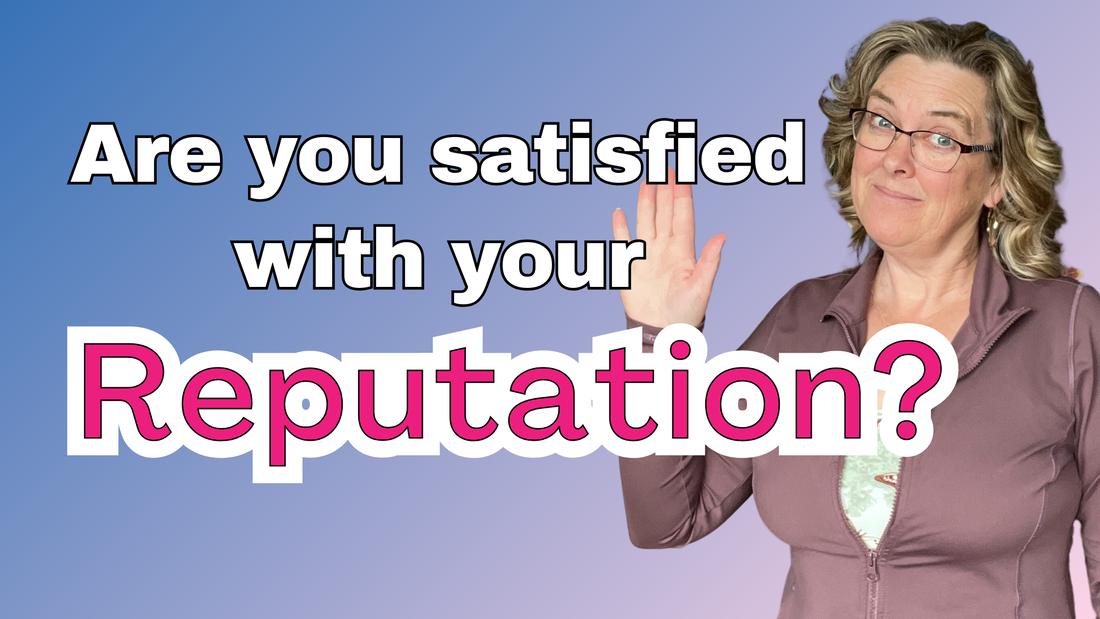

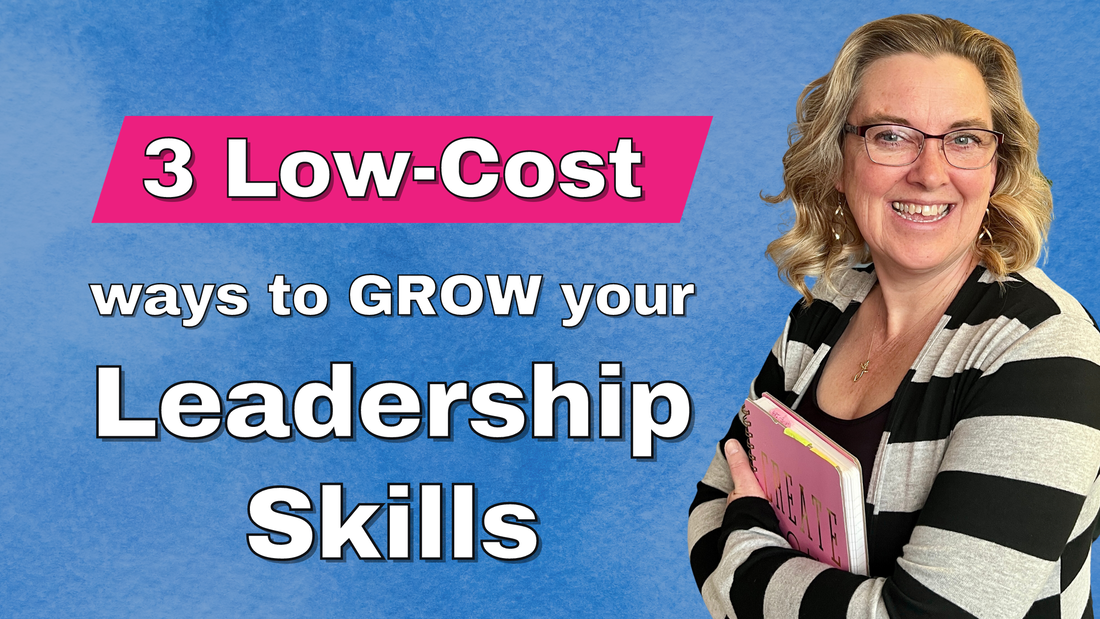
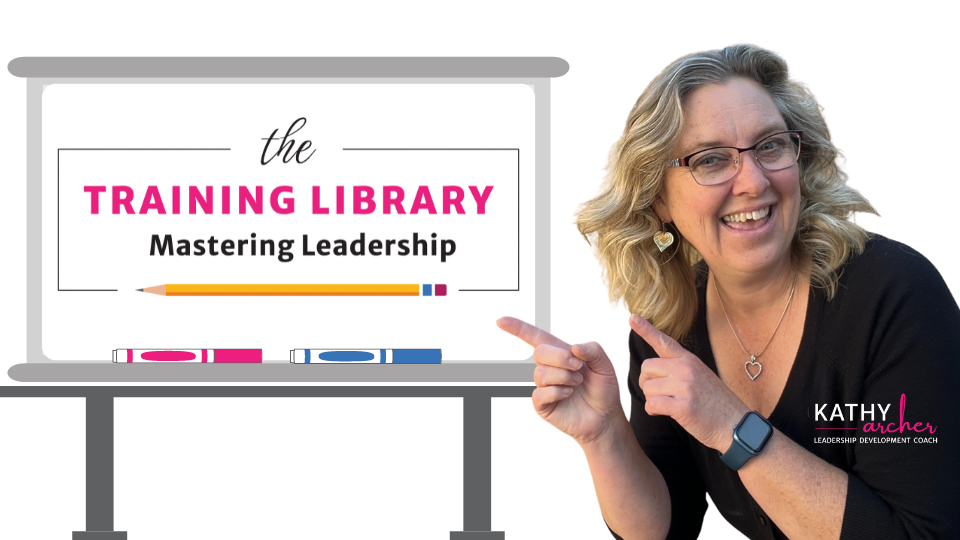
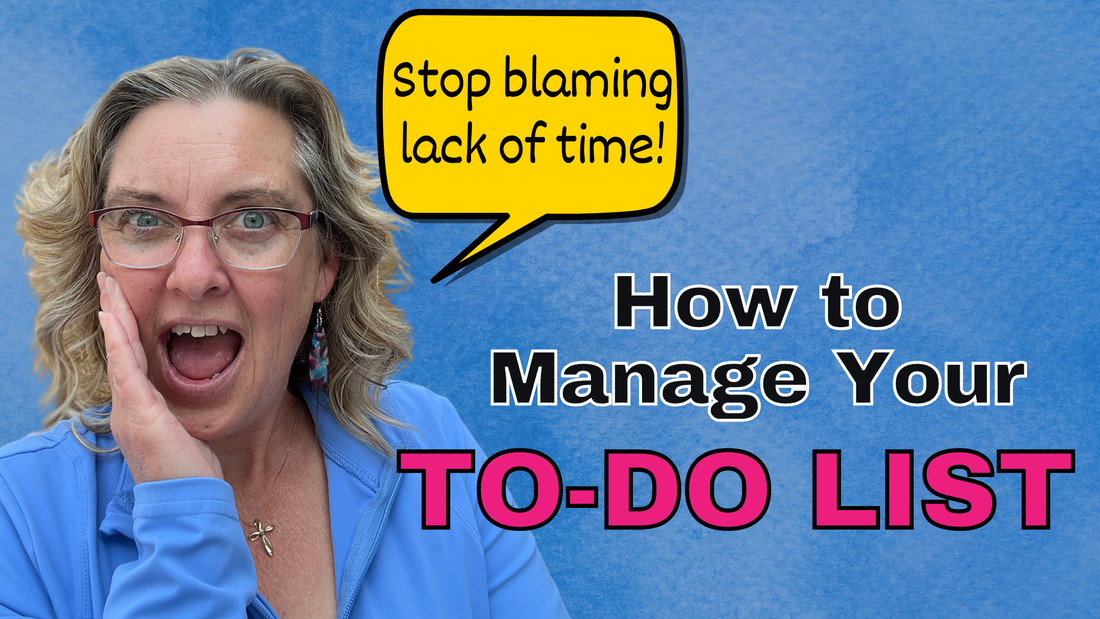
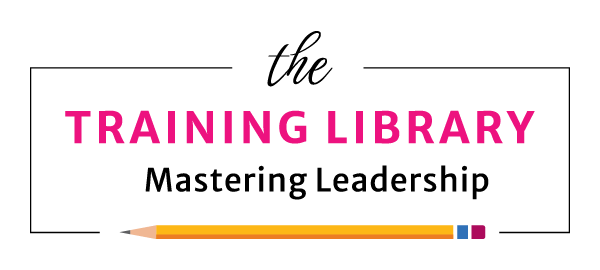


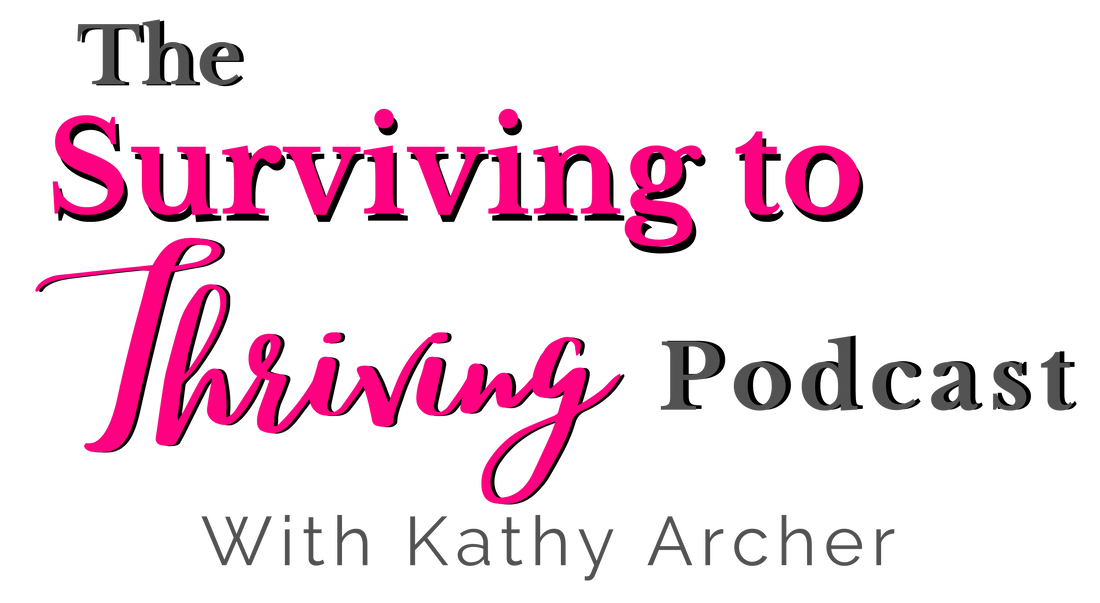
 RSS Feed
RSS Feed
